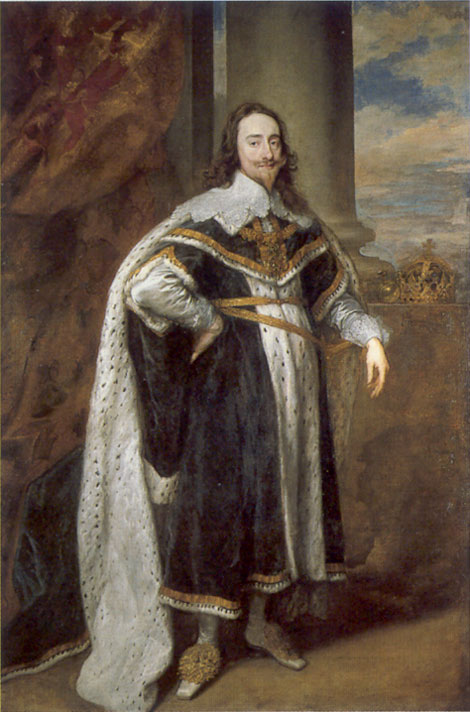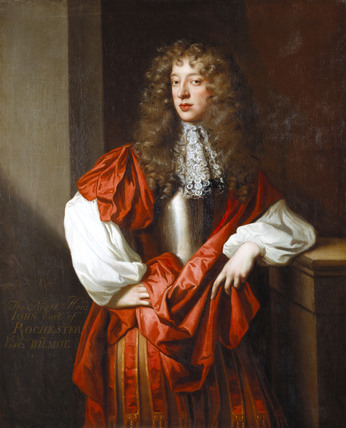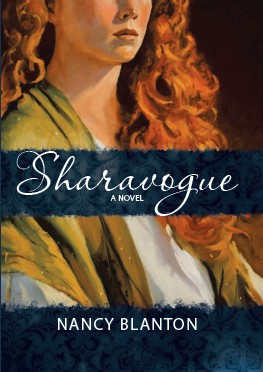Love and Hate with the Earl of Strafford
/In his brightest hour, as chief advisor to King Charles I of England, he was loved by some and deeply hated by others. And yet, one is likely to feel respect for him, if not true admiration.
Read MoreInternational Award-Winning Author
In his brightest hour, as chief advisor to King Charles I of England, he was loved by some and deeply hated by others. And yet, one is likely to feel respect for him, if not true admiration.
Read MoreThese two members of feuding Anglo-Irish families were actually cousins, and made an unlikely couple until events shifted, ultimately allowing a marriage of choice rather than arrangement.
Read MoreFor personal branding, where other monarchs have provided lessons for success, King Charles I of England provides more of a cautionary tale.
Read MoreIn reading last year's historical fiction reader survey by M.K. Tod, I was shocked to learn that the 17th century ranks 7th among time periods readers are most likely to choose. Shocked, I say! Because the 17th century is just so fascinating. In the words of J.P. Sommerville, University of Wisconsin history professor, the 17th century is "probably the most important century in the making of the modern world. It was during the 1600s that Galileo and Newton founded modern science; that Descartes began modern philosophy; that Hugo Grotius initiated international law; and that Thomas Hobbes and John Locke started modern political theory."
See what I mean? Just little things like these happened in the 17th century. But wait, there's more!

"The Dutch, French, Spanish, Portuguese, English, and others, all struggled to maintain and extend colonies and trading-posts in distant corners of the globe, with profound and permanent consequences for the whole world," Somerville wrote.
It was a time of tremendous turmoil and brilliant discovery:
And there were sweeping changes that affect our lives even today:
Architecture. Inigo Jones (the Banqueting Hall) and Christopher Wren (St Paul's Cathedral) introduced magnificent architectural designs in London and throughout England that remain beautiful and influential.
Banking. In England, instead of depositing gold in the king's mint for safety -- where he might confiscate it (as Charles I did in 1640) -- London merchants deposited money with goldsmiths who gave them receipts and promised to pay on demand.
Food. People started eating with forks for the first time. England discovered bananas, pineapples, chocolate, coffee and tea.
Furniture. Chests of drawers became common, and Grandfather clocks popular, followed by a new arrival: the bookcase.
Medicine. Doctors learned how blood circulates around the body, and how to treat malaria with bark from the cinchona tree.
And of course, there were the scandals:

The murder of Buckingham
Personally, I am digging deeply, fascinated by the greed, intrigue, rebellion, atrocities and resilience that took place in Ireland. Fascinating stories abound.
Yes, I am shocked that anyone might find another century more alluring. Not me.
 Embark on an adventure in Irish history -- 17th century, that is, with Sharavogue, and my upcoming novel, The Prince of Glencurragh. Available on amazon.com, barnesandnoble.com, and iBooks. Find out more at nancyblanton.com
Embark on an adventure in Irish history -- 17th century, that is, with Sharavogue, and my upcoming novel, The Prince of Glencurragh. Available on amazon.com, barnesandnoble.com, and iBooks. Find out more at nancyblanton.com
 Three hundred and sixty-four years ago this month, England's King Charles I was beheaded by direction of Parliament, with General Oliver Cromwell leading the formalities. King Charles was charged with treason, having just lost a bloody civil war and continuing to plot with is pesky royalist friends.
Charles I was considered a bad king. He signed away business monopolies to his favorites without regard to the consequences, taxed greedily and without consent of Parliament, and spent lavishly on his grand art collection. He thought he had the right: the God-given King's Prerogative, to which Parliament did not subscribe. Plus, his wife was Catholic when the country most definitely had gone Protestant and Puritan.
Three hundred and sixty-four years ago this month, England's King Charles I was beheaded by direction of Parliament, with General Oliver Cromwell leading the formalities. King Charles was charged with treason, having just lost a bloody civil war and continuing to plot with is pesky royalist friends.
Charles I was considered a bad king. He signed away business monopolies to his favorites without regard to the consequences, taxed greedily and without consent of Parliament, and spent lavishly on his grand art collection. He thought he had the right: the God-given King's Prerogative, to which Parliament did not subscribe. Plus, his wife was Catholic when the country most definitely had gone Protestant and Puritan.
In her book, Rebels and Traitors, Lindsey Davis does a nice job of describing the dramatic scene:
The King knelt before the block. He spoke a few words to himself, with his eyes uplifted. Stooping down, he laid his head upon the block, with the executioner again tidying his hair. Thinking the man was about to strike, Charles warned, 'Stay for the sign!'
'Yes, I will,' returned the executioner, still patient. 'And it please Your Majesty.'
There was a short pause. The King stretched out his hands. With one blow of the axe the executioner cut off the King's head.
The assistant held up the head by its hair, show the people, exclaiming the traditional words: 'Here is the head of a traitor!' The body was hurriedly removed and laid in a velvet-lined coffin indoors. As was normal at executions, the public were allowed to aproach the scaffold and, on paying a fee, to soak handkerchiefs in the dripping blood, either as trophies of their enemy, or in superstition that the King's blood would heal illness.
Kings had been killed before, of course, but most typically in battle by an opposing army, or they were murdered by some ursurper using a blade or a poison. But this was the first time a nation's government had executed a king. Would God allow that? Apparently so, and it sent a shockwave throughout Europe's monarchies.
It also freed Oliver Cromwell to begin the episode for which he is most hated and remembered -- especially by the Irish. A rebellion against the English plantation of Ireland had begun eight years earlier. With the civil war won and the king dead, Cromwell was now free to descend with Parliament's army upon Ireland to crush the rebels. And that he did. This is where the term "decimated" comes from: It refers to Cromwell's order for his soldiers to execute every 10th Irish rebel, and the rest were shipped to the West Indies to work as slaves or die. This is where my story begins, in Sharavogue.
Nancy Blanton is the award-winning author of Sharavogue, a historical novel set in 17th Century Ireland during the time of Oliver Cromwell, and in the West Indies, island of Montserrat, on Irish-owned sugar plantations. She has two more historical novels underway, as well as a non-fiction book about personal branding, Brand Yourself Royally in 8 Simple Steps. She also wrote and illustrated a children's book, The Curious Adventure of Roodle Jones, and co-authored Heaven on the Half Shell, the Story of the Pacific Northwest's Love Affair with the Oyster.

“Like reading The Three Musketeers for the first time!” —reader review of The Prince of Glencurragh